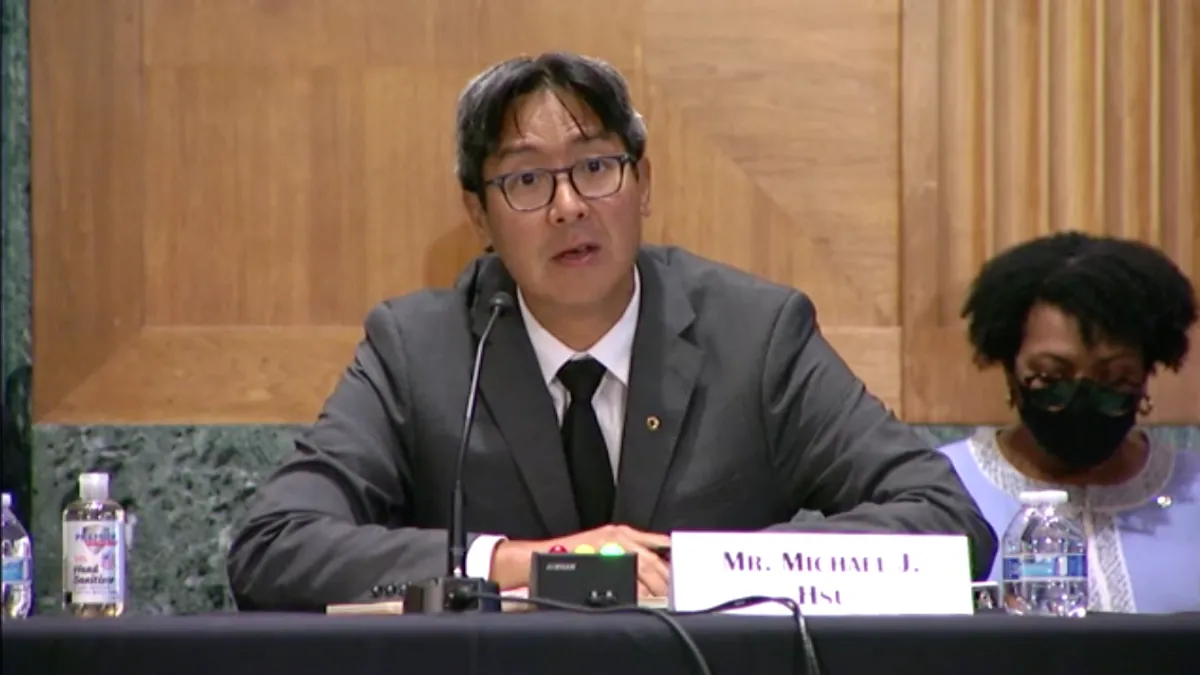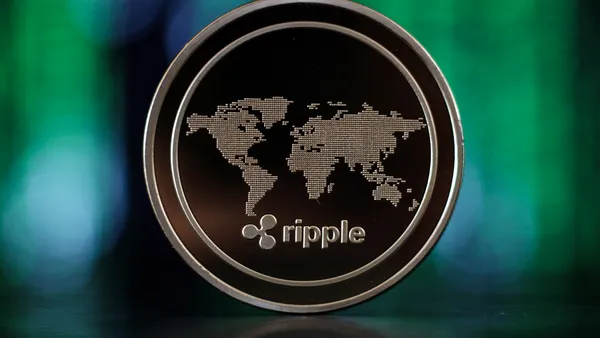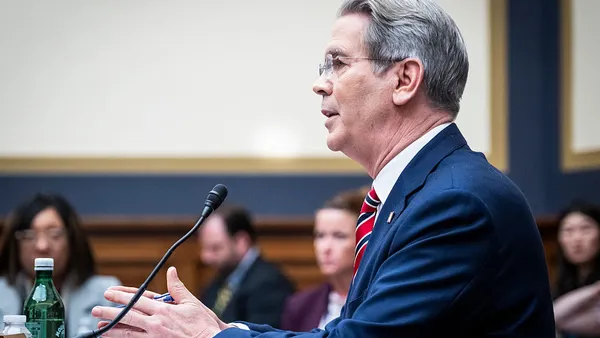Dive Brief:
- The Office of the Comptroller of the Currency (OCC) is paying close attention to bank-fintech partnerships, a “complex set of arrangements” that could put the financial system at risk of a crisis if not properly supervised, Acting Comptroller Michael Hsu said Wednesday.
- The growth of banking-as-a-service (BaaS) and the “de-integration” of banking have made it difficult for customers, regulators and the banking industry to distinguish between “where the bank stops and where the tech firm starts,” Hsu said at an industry conference.
- In response, the regulator is working on a process to subdivide bank-fintech arrangements into cohorts with similar safety and soundness risk profiles and attributes, Hsu said.
Dive Insight:
Despite crypto grabbing headlines for most of the past year, Hsu said he believes the impact that fintech and big tech are having on the banking industry warrants more of the OCC’s attention.
“The growth of the fintech industry, of banking-as-a-service and of big tech forays into payments and lending is changing banking, and its risk profile, in profound ways,” Hsu said at a conference hosted by The Clearing House and the Bank Policy Institute in New York City. “Where is this all headed? For me, there is a nagging familiarity.”
Hsu compared the growth of BaaS to the rise of shadow banking and its role in sparking the 2008 financial crisis.
“The ‘de-integration’ of banking services that is taking place now has its roots in technology, data and operations, and is affecting all banks, not just the large money-center banks,” he said. “My strong sense is that this process, if left to its own devices, is likely to accelerate and expand until there is a severe problem or even a crisis. Like the globalization of manufacturing and the disintermediation of credit, the efficiency gains of these changes can be enjoyed immediately, while the most material risks do not manifest for some time.”
Banks have done a commendable job of rebuilding trust since the 2008 crisis, Hsu said.
“Their financial buffers and risk management capabilities have improved dramatically,” he said. However, “trust is sensitive to surprise,” he added.
“The evolution of bank-fintech arrangements in the era of digitalization is giving rise to new opportunities for surprises,” he said.
As innovations in the banking and technology sectors continue to shape the financial services industry, Hsu expressed concern over a potential “race to the bottom with pressure to cut compliance corners.”
He pointed to two business models: one that prioritizes net interest margin and another that stresses the lifetime value of a customer, and asked about the dynamic between them.
“Do they lead to healthy competition resulting in better products and services and more resilience at better prices for customers?” he asked. “Or do they monetize user data in novel ways? Perhaps both?” he said. “In the lead-up to the 2008 financial crisis, the failure to understand these dynamics between traditional and shadow banking created a massive blind spot for the industry and regulatory community.”
The OCC is actively working with industry peers to eliminate such blind spots, Hsu said, highlighting the regulator’s five-year strategic plan, which “explicitly acknowledges the digitalization forces that are at play and the need for us to be agile and credible in addressing them.”
“Much more work remains to be done. My sense is that we are still in the early stages of a significant shift in how banking services are going to be provided in the future,” he said. “By expanding our aperture, engaging more substantively with nonbank technology firms, and mapping out bank-fintech relationships and risks, we can help ensure that banking remains trusted and safe, sound and fair as the system evolves.”
Hsu is not the only current or former comptroller this week to come forward with concerns regarding fintech’s footprint in the banking space. Nonbanks "will get us into the next financial crisis if we don't do something about it," Eugene Ludwig, a former comptroller of the currency, warned at the same conference Tuesday, according to Reuters.
Banks should be allowed to “play more aggressively in the crypto markets” and “retake the turf rather than let the turf devolve away,” Ludwig said, according to Bloomberg.
Crypto, climate
Hsu, meanwhile, emphasized that crypto is still a concern — but perhaps a little less pressing since the market cap for it has shrunk from about $3 trillion in November to $960 billion now, according to CoinMarketCap figures.
The OCC, Federal Reserve and Federal Deposit Insurance Corp. (FDIC) pledged in November to issue guidance in 2022 regarding how banks can legally engage with digital assets. But now, with fewer assets at stake, “there’s just a little bit more breathing space,” Hsu said Wednesday, according to The Wall Street Journal. “We have time.”
Hsu touched on climate Wednesday, too, noting the OCC would name new leadership for its Office of Climate Risk "in the coming weeks.”
Efforts to measure hypothetical losses from climate change scenarios should encompass a diversity of approaches rather than a standard one, as with banks’ annual stress tests, Hsu said.
"With climate-related risks, I believe we are much more exposed to failures of imagination — not asking enough 'what if?' questions — than we are to failures of stringency or consistency," he said.
Regulators, rather, should address climate risk with "a clean sheet of paper and an open mind," Hsu said.














